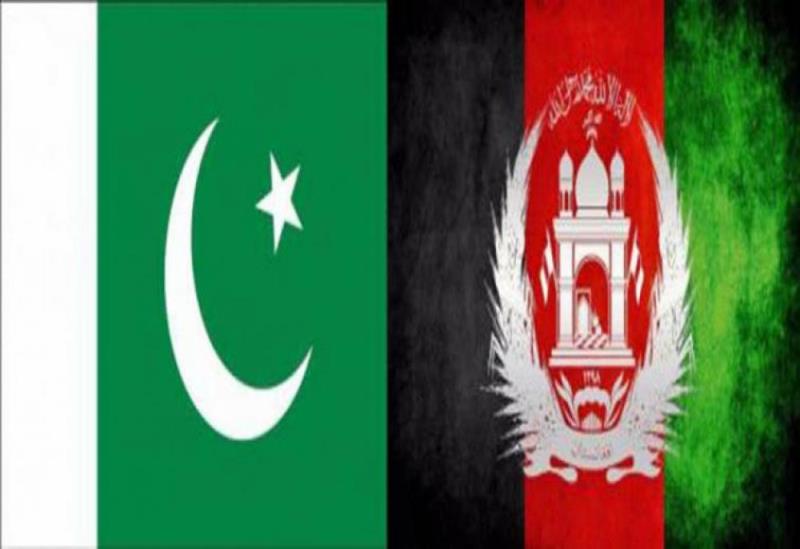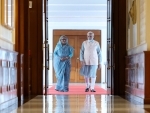South Asia
 Afghanistan-Pakistan
Afghanistan-Pakistan Why Afghanistan distrusts Pakistan?
Kabul August 3: Afghan Vice President Amrullah Saleh recently complained in a tweet that the Pakistani Air Force had warned the Afghan Defense Forces that it would retaliate if it tried to drive Taliban fighters out of the key border town of Spin Boldak.
Breaking: Pakistan air force has issued official warning to the Afghan Army and Air Force that any move to dislodge the Taliban from Spin Boldak area will be faced and repelled by the Pakistan Air Force. Pak air force is now providing close air support to Taliban in certain areas
— Amrullah Saleh (@AmrullahSaleh2) July 15, 2021
Former intelligence chief Saleh is a fierce critic of Pakistan. The Taliban have repeatedly attacked him to kill him.
When suspicions were raised on social media about his allegations, Saleh further tweeted that he was willing to provide evidence.
If anyone doubts my tweet on Pak Air Force & Pak Army warning to d Afg side not to retake Spin Boldak I am ready to share evidence through DM. Afghan aircrafts as far as 10 kilometers frm Spin Boldak R warned 2 back off or face air to air missiles. Afg is too big to be swallowed
— Amrullah Saleh (@AmrullahSaleh2) July 15, 2021
The Taliban have been trying to occupy the country since the withdrawal of US troops from Afghanistan began. They have already taken over the border areas of Iran, Uzbekistan and Tajikistan.
Saleh's allegations are not new. Earlier, the Afghan government had accused Pakistan of harboring and providing military support to the Taliban. The issue has resurfaced after two decades of US troop withdrawal.
Abdul Satar Hussaini, an Afghan politician, said in a recent TV show, "You must know that we are under the control of Pakistan. We are not just fighting the Taliban, we are also involved in this shadow war with Pakistan."
"Even the Taliban hasn't planned as much against Afghanistan as Pakistan. But we will not accept Pakistan's plans," he said.
Pakistani Foreign Minister Shah Mahmood Qureshi recently took part in an Afghan TV show to convince the locals that such allegations were baseless. When asked about the presence of some Taliban leaders in Pakistan, Qureshi said he was not aware of it.
The Minister repeatedly tried to convince the presenter that these allegations were baseless, but he could not answer the difficult questions of the presenter. According to experts, such events often portray a negative image of Pakistan.
At the same time, the two countries have been at loggerheads over a number of issues that have made the Afghan people generally skeptical of Pakistan.
The Afghan media has been critical of helping the Taliban. Most of them, and political analysts, are blaming Pakistan's military and intelligence agencies for the current instability in that country.
Pakistan denies aiding the Taliban, but many Afghans do not believe it.
"Afghanistan-Pakistan relations have been strained for more than four decades. Most Afghans living in big cities have a negative view of Pakistan because Islamabad supported the Taliban and the Mujahideen in the 1990s," Sharif Hassanyar, head of Kabul's Ariana News TV channel, told Deutsche Welle.
Najibullah Azad, a spokesman for the former president, believes that Afghans' ideas are based on truth. "Pakistani authorities have acknowledged some of the allegations made by Afghan experts," he said. "Former President Pervez Musharraf had said in an interview with Indian media that they support the Taliban. In 2015, Imran Khan said his hospital treated a wounded Taliban fighter. Recently, Pakistan's Interior Minister Sheikh Rasheed said that the families of the Taliban members are in Pakistan."
Since the impact of the internal problems of these two countries plays a big role between the two countries, the consequences of the withdrawal of US military forces will also become important here.
"No matter how hard civil society members and journalists try to restore trust between the two countries, it is the government's job," Hassanyar said. "High-ranking Afghan officials have visited Pakistan in the past few months, but the situation has not changed at all. If this situation is to change, Pakistan must stop supporting armed groups.”
Meanwhile, like officials in Pakistan, Kabul needs to stop making such allegations if it is to improve relations between the two countries.
Ahmed Sharif, a prominent Afghan expert, told Deutsche Welle in an interview that the possibility of a civil war was growing as NATO troops withdrew from Afghanistan and the Taliban took control of various areas. The impact of this situation could fall on neighboring countries.
He said the Taliban would never negotiate with the government of Afghan President Ashraf Ghani as long as the Pakistani military and intelligence services sheltered the militants. "Pakistan should reach a settlement or force the Taliban to leave the refugee camps in Quetta and Peshawar."
Azad also said the same thing. "In the last few months, high-ranking Afghan officials have gone to Pakistan to resolve the issue diplomatically. But in reality, nothing has changed."
"Pakistan needs to stop supporting militants if it wants to improve its image in Afghanistan," he said.



